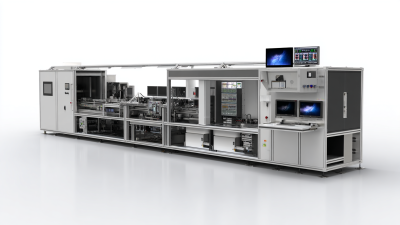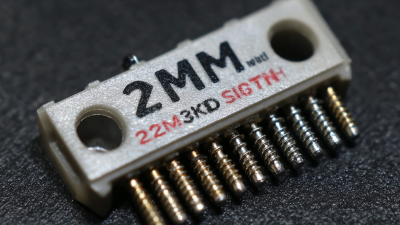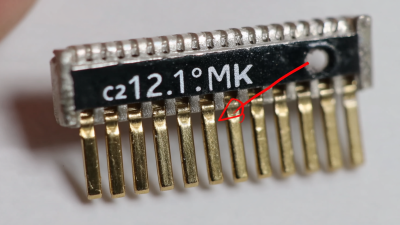


In today's fast-paced business environment, the significance of "High Speed BTB" (Business-to-Business) transactions cannot be overstated. Recent industry reports indicate that companies adopting high-speed transaction technologies have seen operational efficiency increase by up to 30%, dramatically enhancing their competitive edge. According to a study by McKinsey, digital transformation in B2B sectors is projected to unlock $1 trillion in productivity gains by 2025. With consumers and businesses alike expecting seamless and instantaneous service, organizations are rapidly shifting towards high-speed digital solutions. This transition not only streamlines the payment process but also reduces transaction costs and mitigates risks associated with traditional methods. As these trends evolve, embracing high-speed BTB technology emerges as an essential strategy for businesses aiming to thrive in an increasingly digital marketplace.

High-speed business-to-business (BTB) transactions are transforming the landscape of modern commerce by drastically enhancing transaction efficiency.
Businesses increasingly rely on rapid payment processing and automated systems, which enable them to handle a larger volume of transactions without compromising accuracy or speed.
This acceleration of transaction speed not only reduces waiting times but also optimizes cash flow, allowing organizations to reinvest in growth opportunities more quickly.
Moreover, the integration of high-speed BTB solutions facilitates seamless communication and collaboration between firms.
With real-time data exchange, businesses can respond promptly to market demands and customer needs, fostering a more agile operational environment.
The adoption of these advanced technologies also minimizes the risk of errors associated with manual processes, ensuring that transactions are executed smoothly and securely.
As businesses embrace high-speed BTB, they set the stage for innovative practices and enhanced competitiveness in an increasingly fast-paced market.
High-speed business-to-business (BTB) transactions are transforming the landscape of commercial interactions. One of the key features driving this revolution is the enhanced efficiency that these systems provide. By leveraging automated processes and real-time data transmission, businesses can conduct transactions at unprecedented speeds. This rapid processing reduces operational delays, allowing companies to respond promptly to market demands and customer needs.
Another significant benefit of high-speed BTB transactions is improved accuracy and reduced errors. Automated systems minimize the human interventions that often lead to mistakes, ensuring that data is processed correctly every time. This reliability fosters stronger partnerships among businesses, as companies can trust that transactions will be executed seamlessly and efficiently. Additionally, high-speed transactions enable better cash flow management, providing businesses with crucial insights into their financial health and empowering them to make informed strategic decisions.
| Feature | Benefit | Impact on Business |
|---|---|---|
| Speed of Transactions | Reduces time for processing and approvals. | Increased operational efficiency. |
| Cost-Effectiveness | Lower transaction fees compared to traditional methods. | Better profit margins. |
| Improved Security | Enhanced encryption protocols protect sensitive data. | Increased trust from clients. |
| Real-Time Analytics | Immediate insights on transaction trends and performance. | Better decision-making processes. |
| Integration with Existing Systems | Smooth integration with ERP and CRM systems. | Streamlined operations across departments. |
The evolution of business transactions has taken a significant leap forward with high-speed B2B innovations, contrasting sharply with traditional methods. Traditionally, businesses relied on paper-based processes, which often led to delays and increased costs. These slow transactions not only hampered efficiency but also risked errors that could undermine trust between parties. High-speed B2B transactions, on the other hand, leverage automation and digital platforms, allowing for instant communication and real-time data processing, ultimately streamlining the entire transaction process.

Tip: To enhance your business's efficiency, consider implementing automated invoicing and payment systems. Such innovations reduce manual input errors and accelerate cash flow, keeping your operations running smoothly.
More than just speed, high-speed B2B transactions facilitate better transparency and security. With traditional methods, businesses often faced challenges in tracking the status of their transactions, which could lead to disputes. In contrast, high-speed solutions provide clear visibility into every step of the process. Additionally, enhanced security features help to protect sensitive information and mitigate the risks of fraud.
Tip: Invest in robust cybersecurity measures while transitioning to high-speed solutions. Protecting your data is vital for maintaining trust and ensuring the smooth operation of your business transactions.
As businesses increasingly embrace high-speed B2B solutions, they face unique challenges in integrating these technologies into their existing frameworks. One major hurdle is the need to overhaul legacy systems that often rely on slower, outdated processes. Transitioning to high-speed systems requires significant investment and a strategic approach to ensure compatibility and efficiency. Additionally, organizations must prioritize cybersecurity, as faster transactions may expose them to greater risks if proper safeguards are not implemented.
Another challenge lies in fostering a customer-centric mindset among B2B stakeholders. While enhancing the customer experience is crucial, moving from a transactional focus to a relationship-based approach can be difficult. Many B2B companies need to enhance their understanding of customer needs and preferences, which requires a shift in corporate culture and training. By leveraging data analytics and feedback systems, businesses can gain insights that bridge the gap between speed and service, ensuring that their high-speed B2B transactions not only streamline operations but also meet the evolving demands of their partners and clients.
The rise of high-speed BTB (Business-to-Business) transactions is set to redefine the landscape of commercial interactions in the near future. As businesses increasingly adopt advanced technologies such as artificial intelligence and blockchain, the velocity at which transactions are processed is skyrocketing. This rapid processing not only enhances efficiency but also significantly reduces the margin for error, ensuring that businesses can respond to market demands more swiftly than ever before. The integration of high-speed data exchange systems is paving the way for real-time insights, enabling companies to make informed decisions almost instantaneously.
Moreover, the future trends indicate a shift towards automation and seamless integration of supply chains. As high-speed BTB transactions evolve, we can expect a surge in smart contracts, powered by blockchain technology, which will automate and secure agreements between parties. This will not only streamline operations but also foster trust through transparency. Furthermore, advancements in machine learning are expected to predict market trends and consumer behavior with unprecedented accuracy, helping businesses stay ahead of the competition. Ultimately, these innovations will catalyze a more interconnected and agile business environment, reshaping how organizations collaborate and transact on a global scale.







